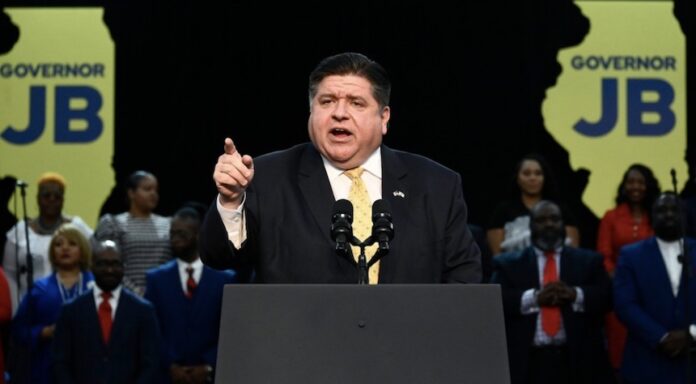The Illinois “SAFE T Act” has been put on hold since December after Kankakee county judge Thomas Cunnington found parts of the law unconstitutional. We previously reported that the Act included many reforms to Illinois’ criminal justice system.
The SAFE-T Act is most controversial because it eliminates cash bail, but also amends the provisions relating to pretrial detention. It replaces bail in order to stop the defendant from fleeing the prosecution. However, the act also protects the public by preventing dangerous defendants from posing a threat.
The SAFE-T Act imposes multiple standards of pretrial detention, one after another. This will make it more difficult for prosecutors to petition to detain defendants who pose a public threat.

The ruling of the trial court applied to 64 counties, but not to the counties that were not involved in the lawsuit. This includes Cook, Lake Kane, DuPage, and 34 other counties.
I wrote at the time that:
National Review Notes:
The SAFE-T Act is the brainchild of Illinois Governor J.B. Pritzker. He has been suggested by some as a possible Democratic presidential candidate for 2024. Both Republicans and Democrats have criticized the bill, accusing Pritzker and allies in the Illinois legislature of ignoring Chicago’s record-breaking violent crime levels.
The Illinois Supreme Court issued a 43-page opinion on Tuesday that upheld the SAFE-T Act. By overturning the ruling of the trial court, the Court concluded.

The Illinois Constitution of 1971 does not mandate monetary bail as the only way to ensure criminal defendants attend trials or to protect the public. The Act’s pre-trial release provisions establish procedures that are commensurate to that balance. For the reason that we have explained, we reverse the circuit court’s summary judgment decision in favor of the plaintiffs.
This court issued a supervisory stay on December 31, 2022. It also made various amendments to Illinois Supreme Court Rules that facilitated the implementation of the provisions.
Justice David Overstreet, joined by Justice Lisa Holder White in a dissenting view, observed:
In 2014, the people of Illinois exercised the ultimate sovereign power by granting constitutionally protected rights to crime victims. These rights included the right for courts to consider the safety of victims and their families when “denying or setting the amount of bail”. ”

This constitutionally protected right limits the General Assembly in its authority. The legislature cannot abolish monetary bail until it has asked the people again to exercise their sovereign power.
In New Jersey, when the state changed its pretrial release practices to emphasize non-monetary pretrial releases, it amended its constitution to reflect this fundamental change.
According to the majority opinion, new provisions are set to take effect on the 18th of September.
Governor JB Pritzker posted the following tweet on Twitter to praise the ruling:
— Governor JB Pritzker (@GovPritzker) July 18, 2023




